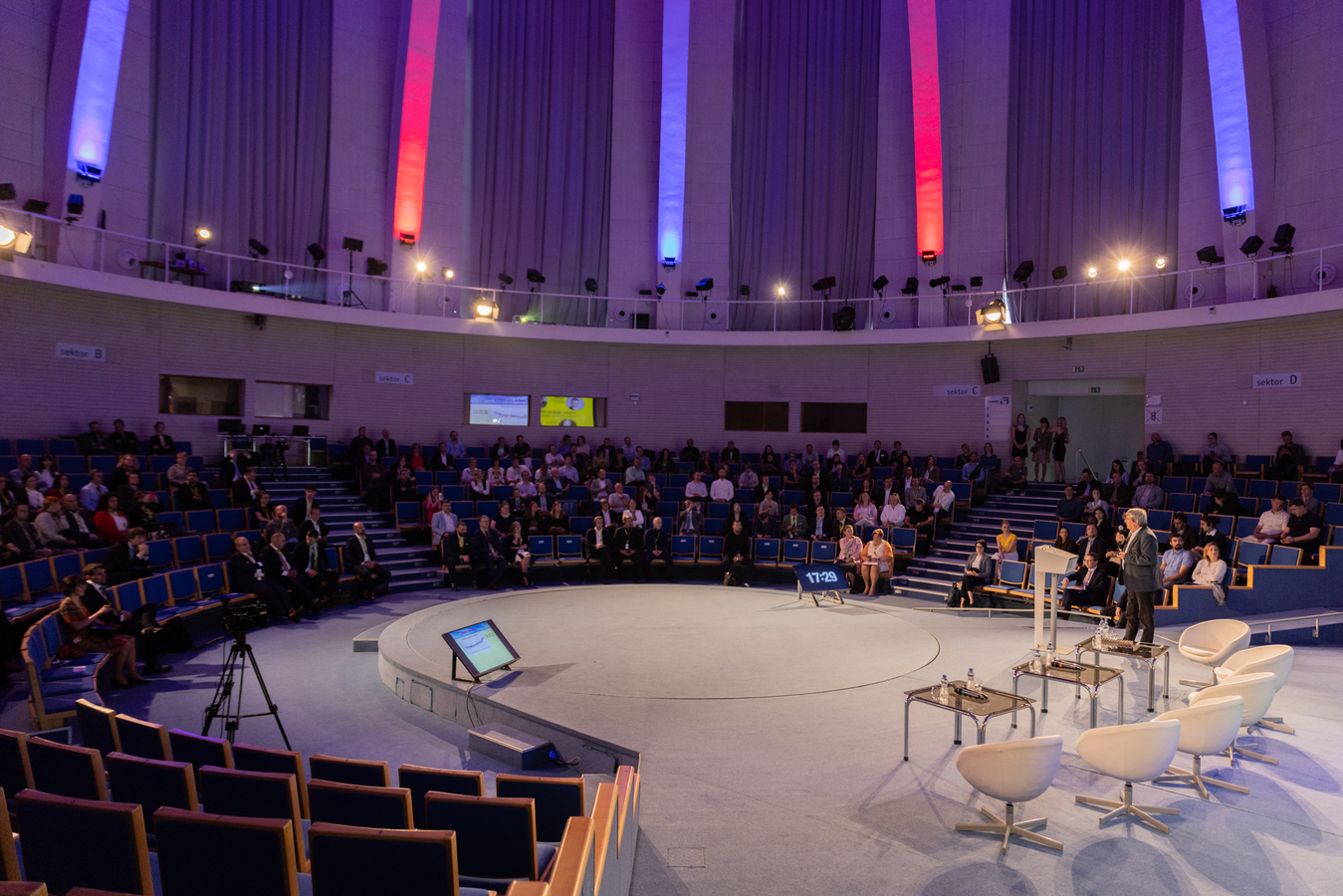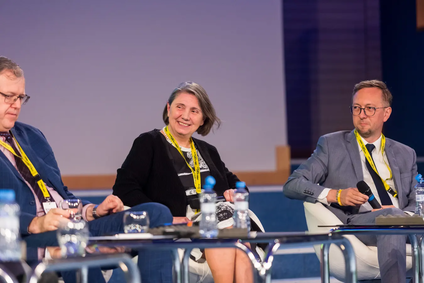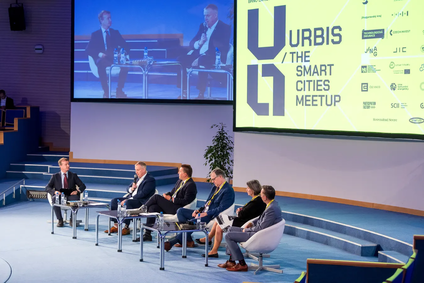Efficient public administration – a theme that resonates throughout the Czech Republic
June 4, 2024 / 5:01 PM
The panel discussion was hosted by Petr Honzejk, commentator and deputy editor-in-chief of the Hospodářské noviny newspaper, who said after the discussion that the speakers were certainly not short of expertise and erudition, but also imagination. And who spoke in this part?
Jindřich Fryč, the Supreme State Secretary at the Ministry of the Interior, Radim Sršeň, Deputy Minister for Regional Development and also the mayor of Dolní Studénky, Petr Zahradník, economist and member of NERV, Rút Bízková, founder and chairwoman of the board of the Institute for Society 4.0, and Tomáš Chmela, vice-chairman of the Association of Local Authorities of the Czech Republic and mayor of Slavičín.
The discussion started swiftly. When asked whether the Czech public administration is smart enough, all participants answered almost unequivocally: no, we are only at the beginning.
In his presentation, Jindřich Fryč showed mainly numbers: 14 ministries and the Office of the Government of the Czech Republic, 15 central administrative offices, 162 service offices, 65,421 civil servants and 7,894 employees. "I try to look at public administration and the change of state administration a little differently, I think that working for the state makes sense and I try to explain why," said Fryč. "It is important to make a deep process audit, to continue the good and to end the bad in a directive way."
According to Rút Bízková, the Czech Republic's wealth lies in its cultural landscape and large number of small municipalities, and this is also a challenge for SMART solutions, which she also sees in the use of artificial intelligence. "Artificial intelligence is really the near future, and communication is not any less important," adds Rút Bízková.
"It is far easier to say, let's shut down small municipalities because they are inefficient, than hit the nail on the head and say that central government is inefficient. That should resonate in the public sector," says Tomáš Chmela.
Radim Sršeň concluded by changing the subject a bit: "It does not matter to the citizen where this or that clerk sits, because in a digitalized world, clerks will work from anywhere. But what I would like to point out and show especially to the young people is that there is another world than the digital world, nature, personal encounters, so that we do not die out, because that is what threatens us with artificial intelligence."


